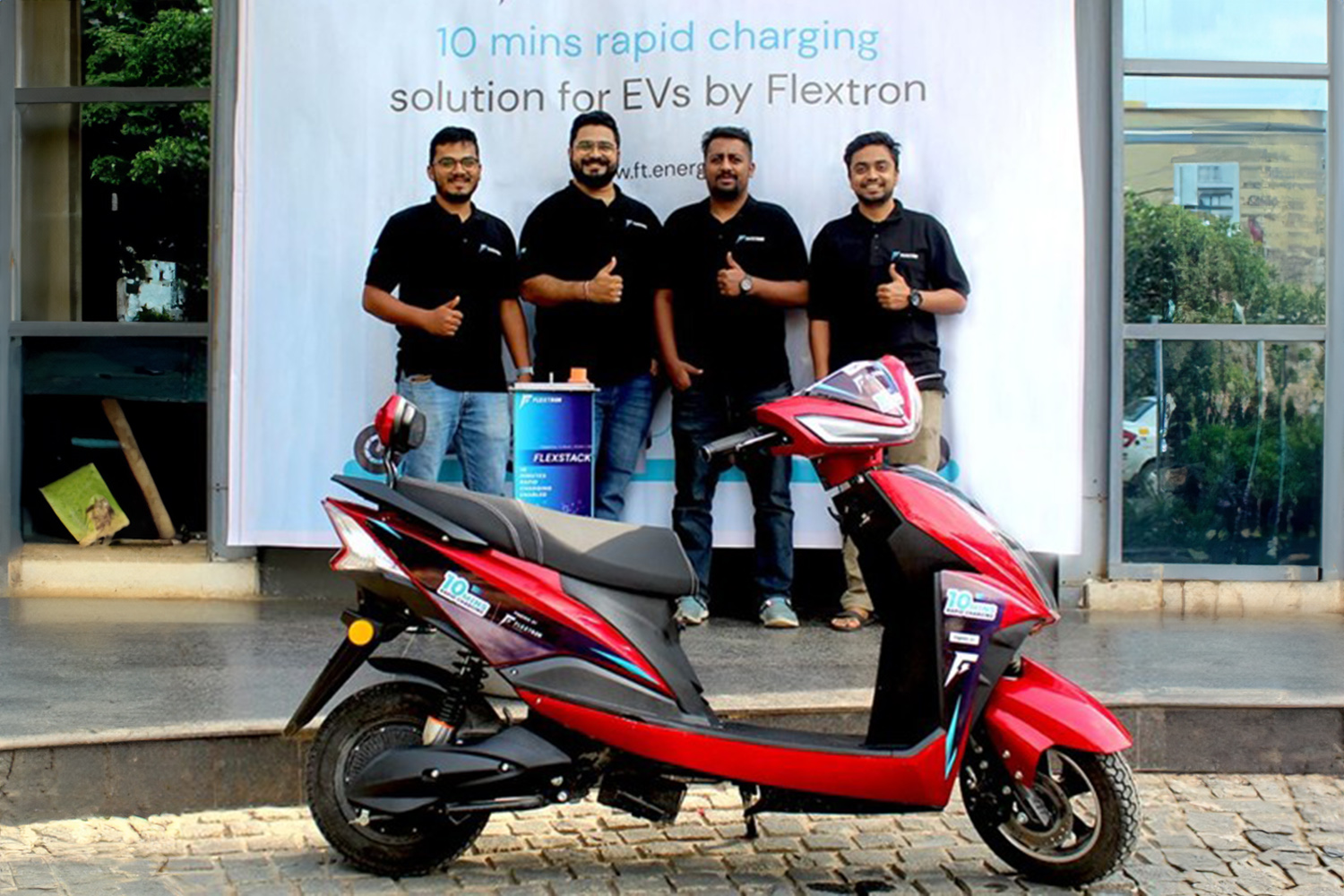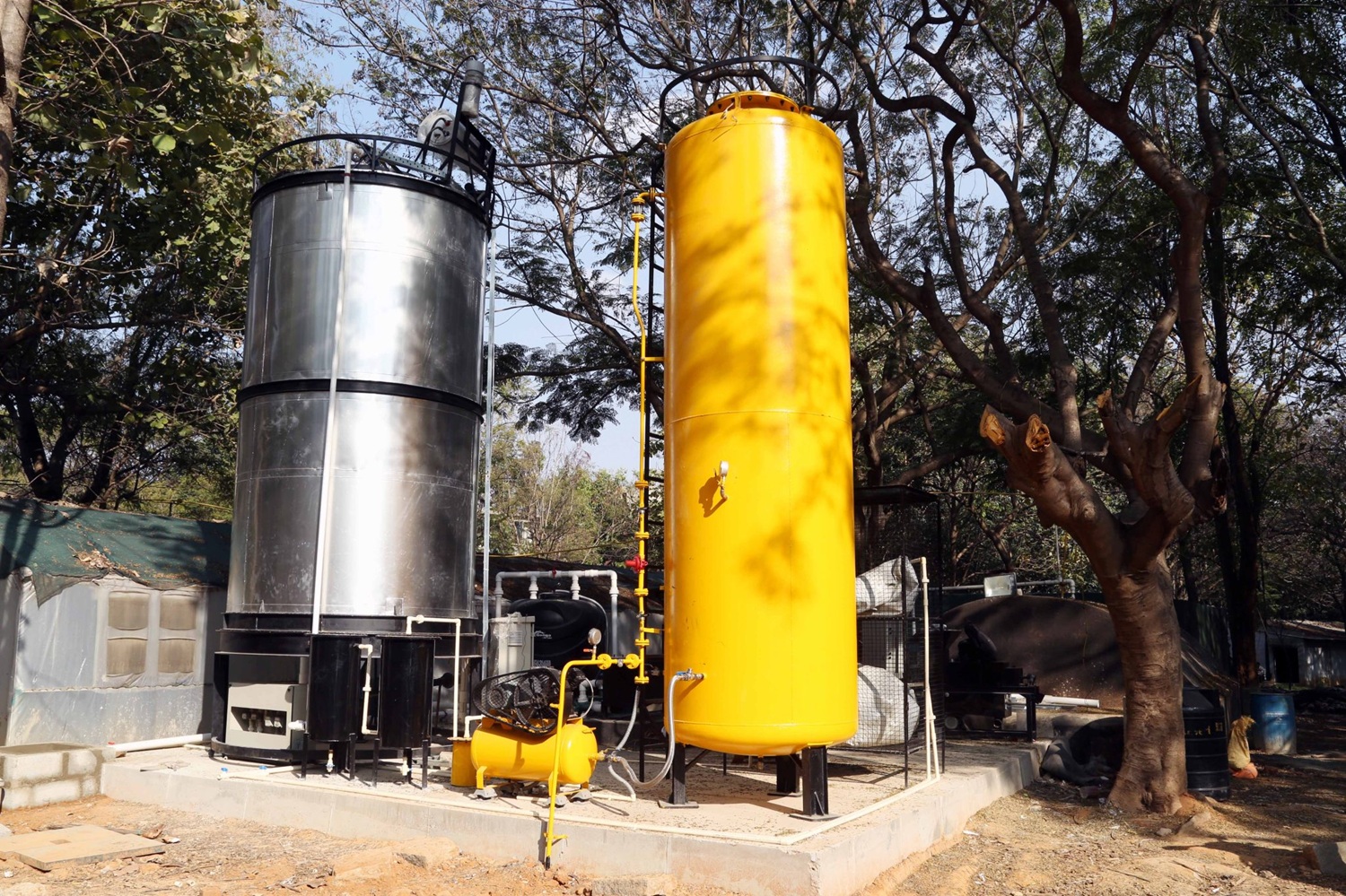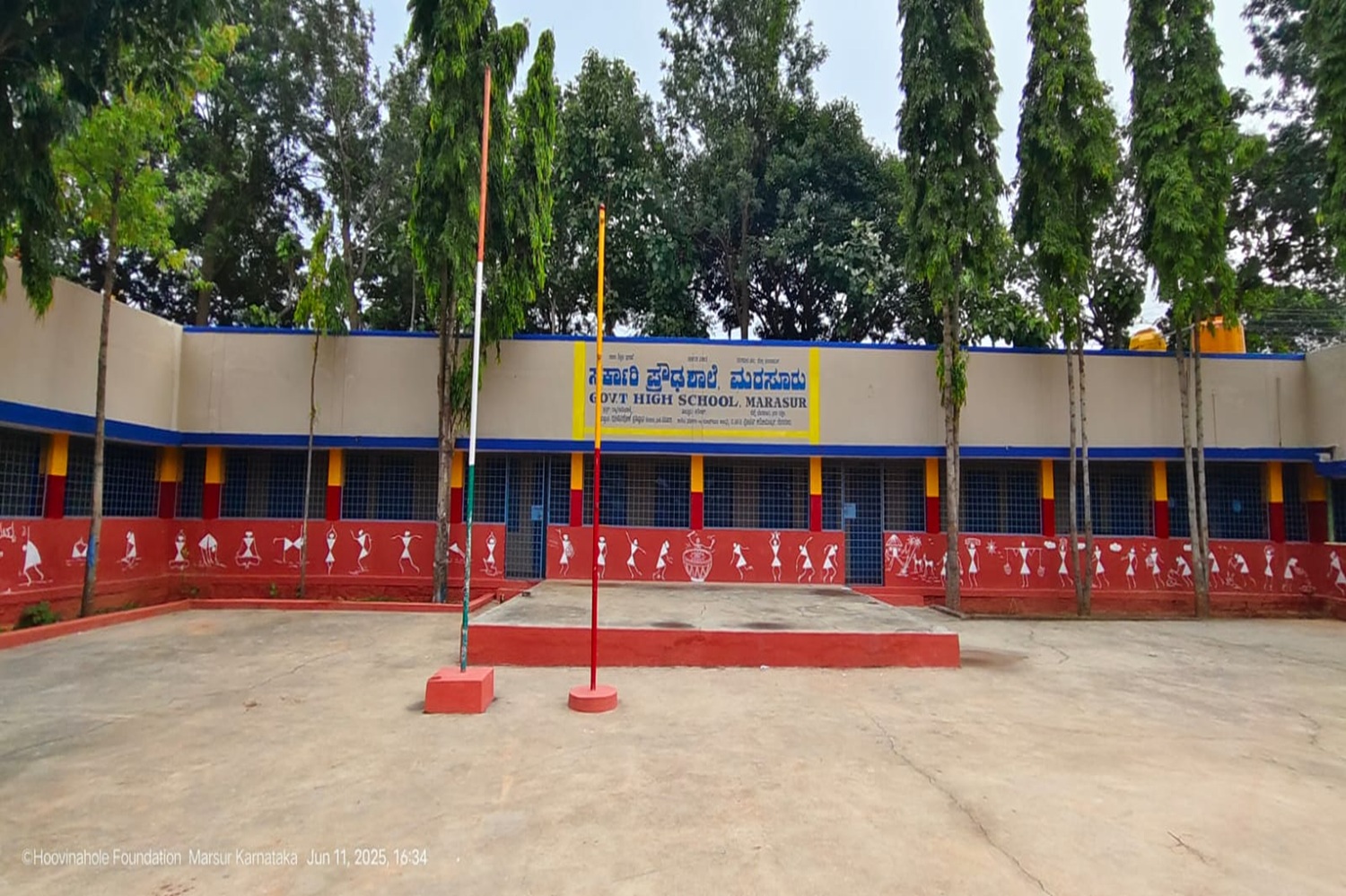IIMB Sustainability Initiatives
Sustainability Taskforce
At IIM Bangalore, sustainability is woven into the very fabric of the campus—from the stone-lined colonnades that open onto lush, pollinator-friendly courtyards to the hidden network of rainwater channels and recharge wells that quietly renew our groundwater. Our buildings and landscapes operate in concert: corridors shaded by native trees guide rain into underground sumps, while a modern treatment plant returns reclaimed water to nourish those same gardens. Through thoughtful architectural design and discreet technological systems, we have created a living campus where ecological resilience underpins every facet of daily life.
Sustainability permeates every aspect of IIM Bangalore. Over the past decade, we have integrated resource resilience into teaching and research, embedding sustainability management modules into our programmes and supporting faculty-led studies on the built environment. Simultaneously, our operations teams have matured systems for rainwater harvesting, wastewater reuse, and energy savings, each addition reinforcing a continuous journey rather than a sudden shift. This integrated approach ensures our campus remains a living laboratory where theory and practice converge to produce real-world insights and scalable solutions.
But our ambition goes further: we have made changes in our academic curriculum which include a dedicated course covering sustainability issues as well as integrating sustainability concerns with each of the core courses. Moreover, we seek to nurture graduates who carry this integrated mindset into every boardroom and policy forum. In doing so, we affirm that true leadership springs from an organization’s ability to root itself responsibly in the present while charting a regenerative path for the future. As stewards of this campus and its community, we invite you to join us in shaping a resilient future defined by Responsible Roots, Sustainable Progress.

Message from the Chairperson
Professor Haritha Saranga
Chairperson, Sustainability Taskforce
IIMB Sustainability Report
Sustainability Initiatives @IIMB
Based on the existing scientific evidence, the decade of 2020-30 offers us the last window of opportunity to secure the future of mankind. If all of us individually and collectively change our behaviors and adopt more ecofriendly lifestyles and business practices, we might still be able to abate climate change and leave our planet intact for our future generations. And if we don’t act immediately, not just the future of humanity, but all life on planet earth is at risk of extinction.
Realizing the need of the hour, IIM Bangalore has been adopting ecofriendly practices and energy saving and water conservation initiatives for more than a decade now. These initiatives have garnered new impetus in recent times through IIMB’s Sustainability Taskforce, which was set up in April 2022.
Energy Initiatives @IIMB



On the energy front, IIMB has been generating solar energy through Rooftop Solar (RTS) installations and solar water heaters in hostels, faculty and staff quarters etc., which helps us meet more than 10% of our electricity needs today. In addition, there have been several other initiatives to save energy, through installation of motion sensor-based lights, more energy efficient lighting and air-conditioning solutions etc. Behavioral interventions through various pilot studies are also underway to nudge campus population and the visitors to adopt ecofriendly practices to minimize energy consumption on and off campus.
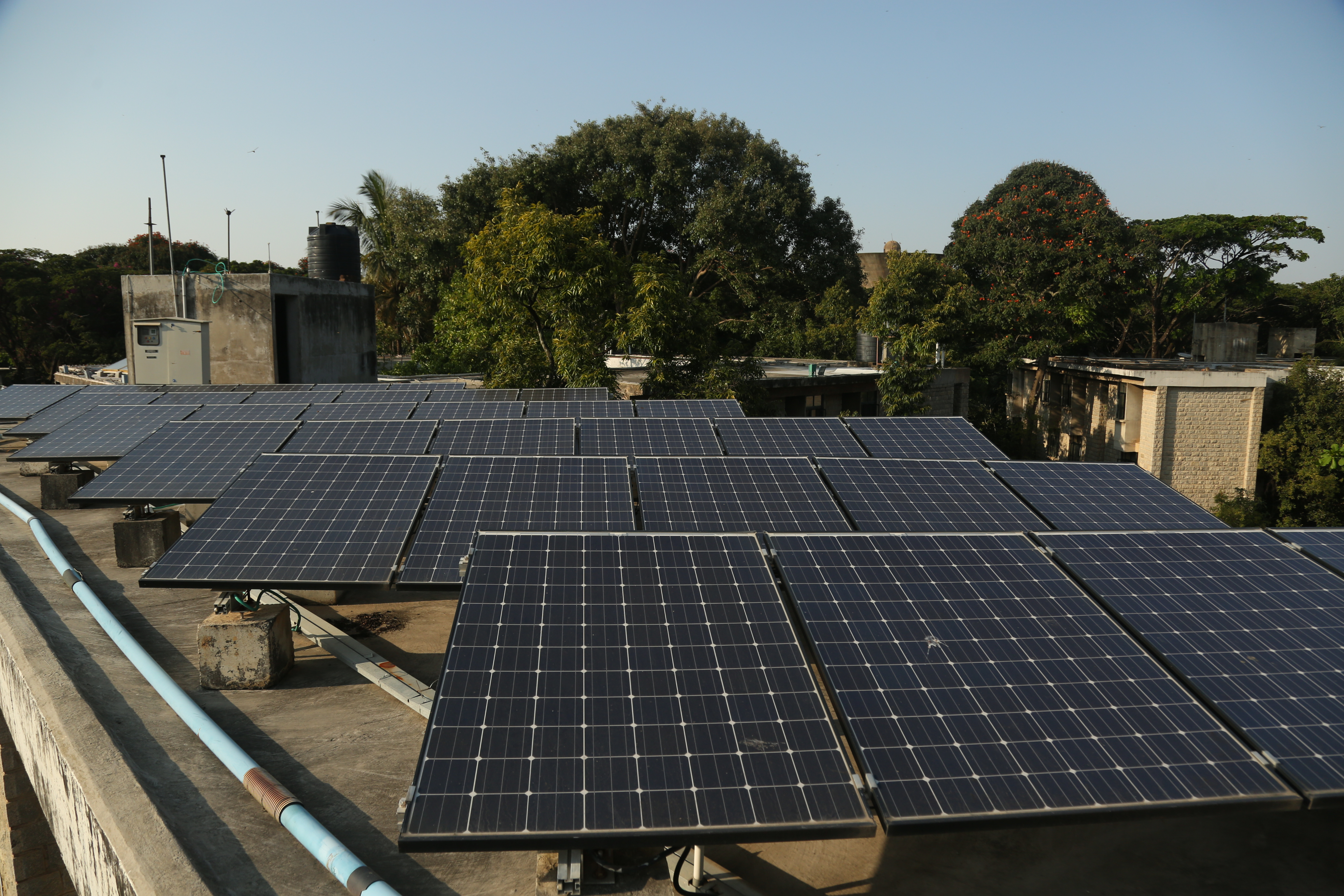
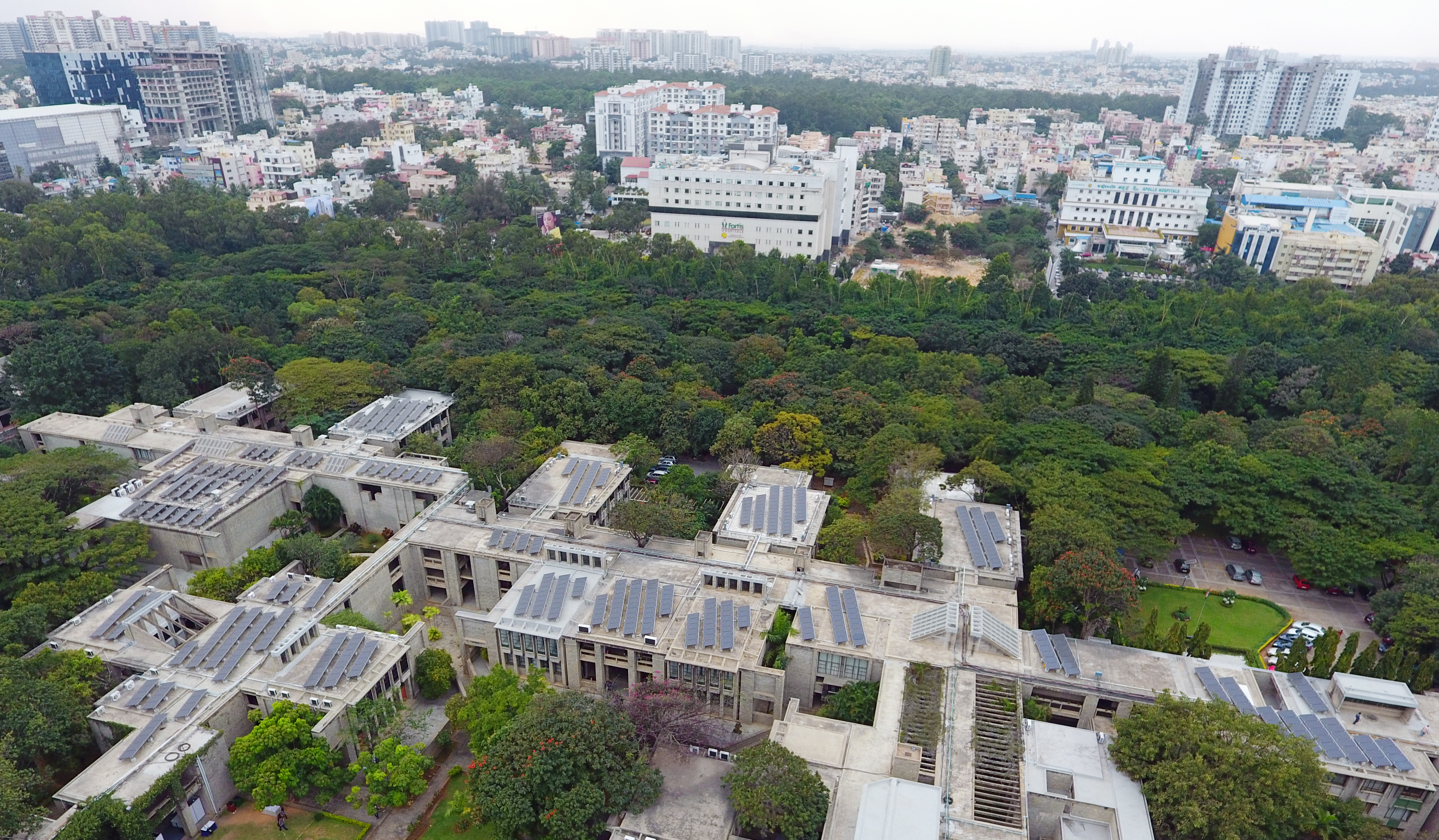
Water Initiatives @IIMB



On the water front, several Re-charge wells were dug across the campus, Rooftop Rainwater Harvesting tanks were built in multiple buildings and a Sewage Treatment Plant that provides 2.5 lakh liters of water every day for gardening purposes, was built in 2013. All these efforts have resulted in not just increasing the water table of IIMB, but also covering 20% of our domestic water needs from water generated from within the campus..
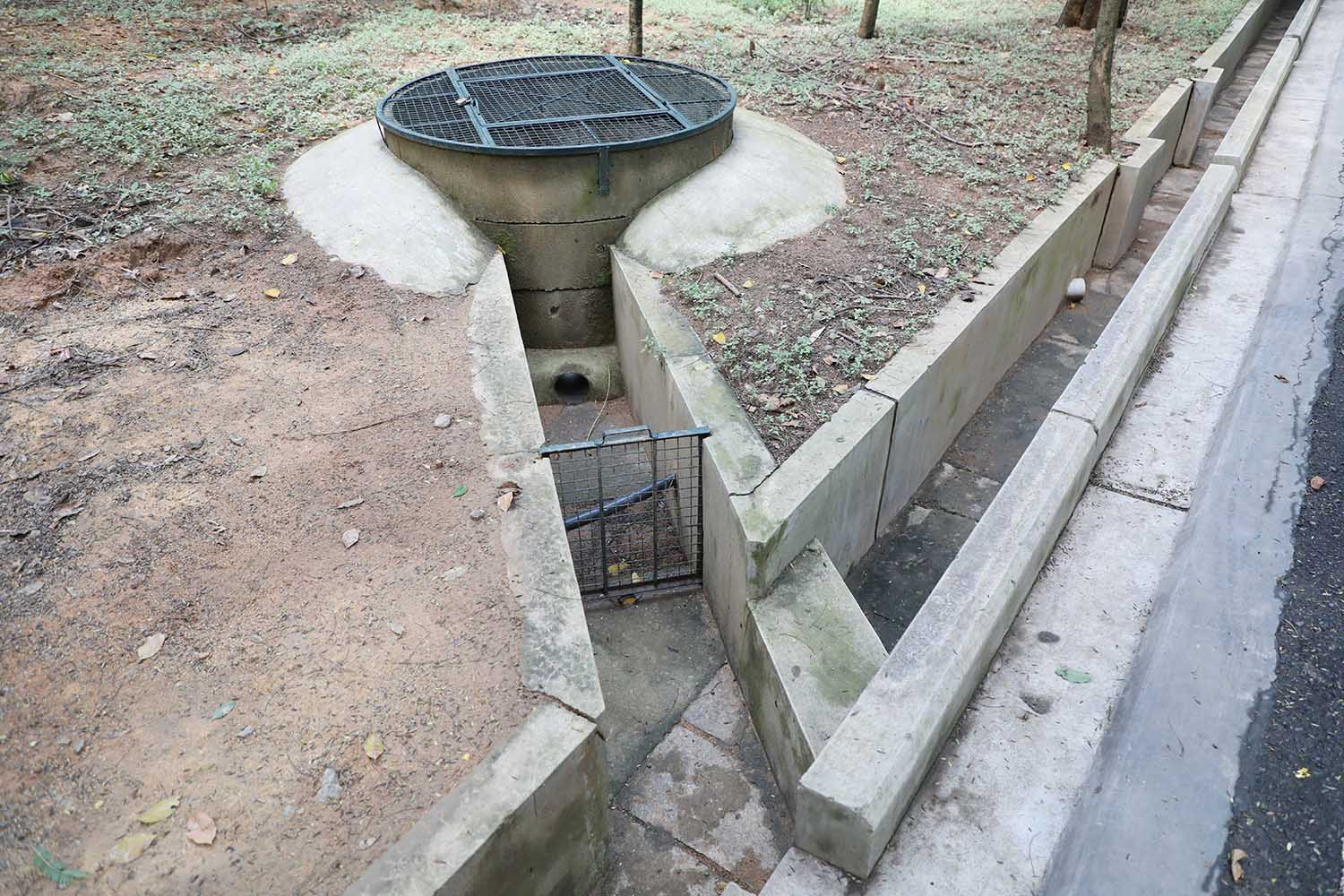
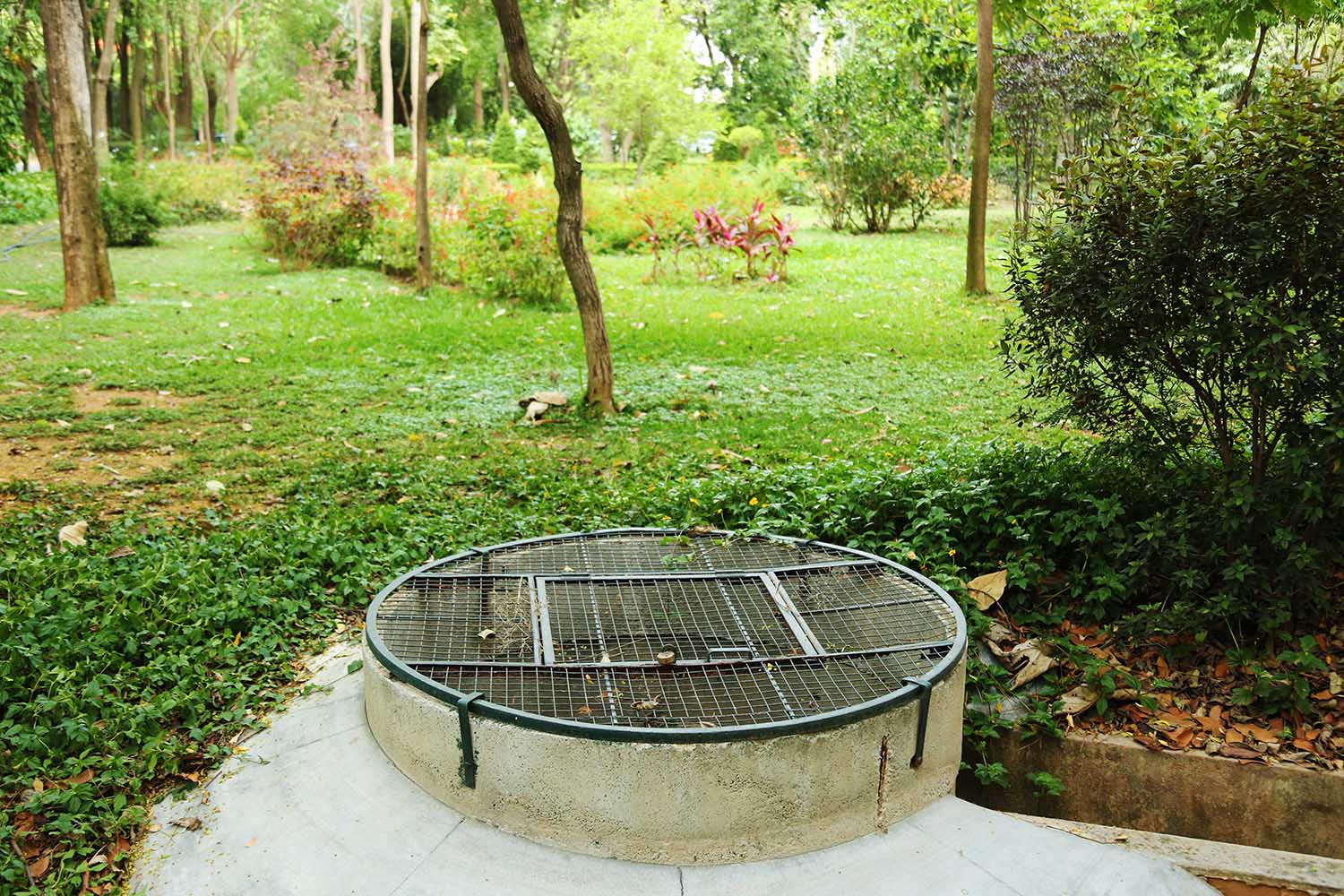
Waste Initiatives @IIMB
The collaboration with Saahas Zero Waste has led to a waste segregation plant on campus in 2017, which not just segregates waste, but also composts wet waste and sends dry waste to multiple recyclers. There are efforts to bring these recycled products back into the campus, to complete the circle and to create a circular economy within IIMB campus. The cooked food waste from staff mess is fed into a Biogas Plant and the gas generated is used in the kitchen, another initiative to create circularity in resource consumption on campus.
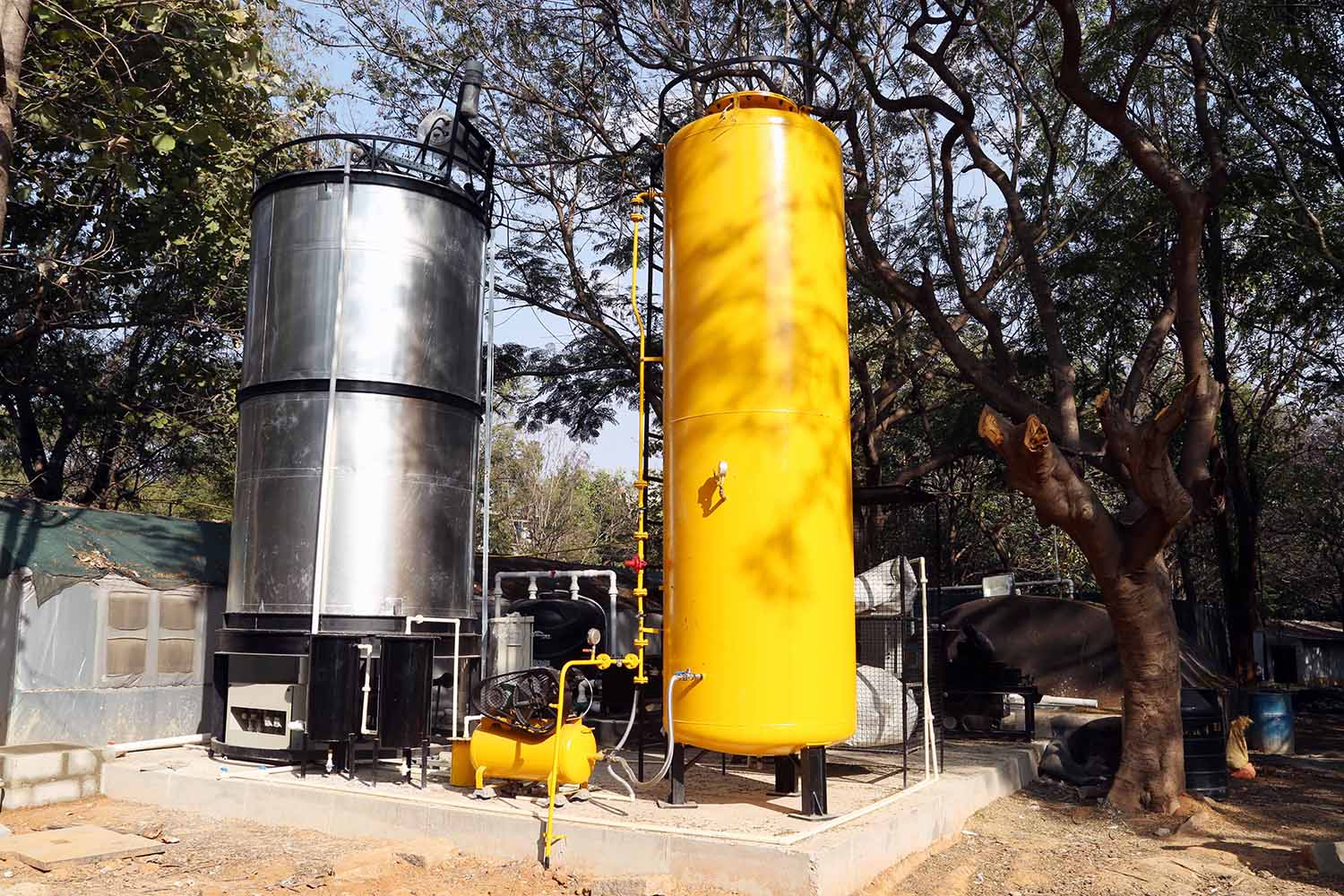
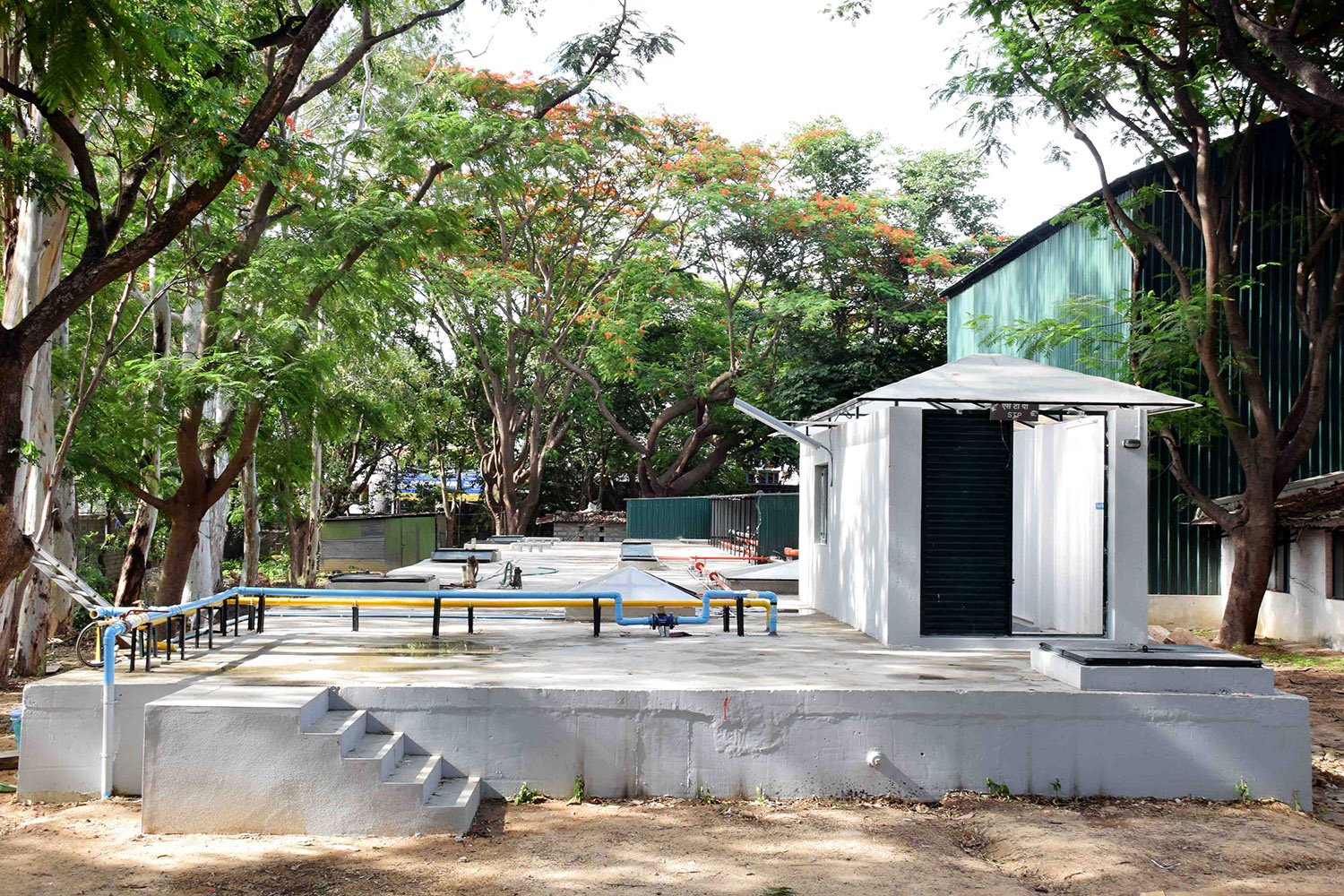
Carbon Sequestration



Out of the 105 acres of IIMB campus, 62 acres is under tree cover that has been nurtured and grown over the last five decades with tender loving care. As a result, IIMB campus today boasts of approximately 20,000 trees and more than 200 species of plants including horticultural trees and flowering plants. Remote sensing images in fact indicate that these trees not just provide a green cover over IIMB community, but also have created a green oasis and act as an oxygen generator for the neighboring communities that are engulfed in a sea of buildings and roads surrounding the campus. In order to ensure that this greenery is not lost due to additional construction and expansion plans on campus, to create a green belt all around the Institute and to enhance the existing greenery by increasing the biodiversity and vegetation density, IIMB has created a strategy for sustainable management of its greenery, which is under execution since 2021.
Recent Green Initiatives

Awareness
Awareness creation regarding waste segregation, across various categories of campus population, including students, staff, and faculty members
![]()
Competition
Case study competition amongst students to generate various sustainability solutions for within and outside campus

Behaviour
Pilot study in NSRCEL to change the behavior of people towards more mindful usage of electricity

Sustainable Shift
Plastic and paper usage has been minimized in IIMB’s executive education programs, after a careful study and focused intervention

Waste Solutions
A community project involving campus children, to identify root causes for mixed waste and appropriate solutions for minimizing the same within IIMB community.

Reuse Drive
Clothes, Toys & Book collection drive to minimize waste and maximize reuse and recycling

Paper Reduction
Nudge-based interventions at IIMB reduced paper use in degree programs. Course pack consumption has dropped, and textbooks are now collected and reused by students.

Climate Awareness
Pilot interventions are being carried out in IIMB’s neighborhood schools to create awareness about mindless resource consumption and how it impacts global warming and climate change amongst school children and their families.
![]()
Sensor Installation
Motion sensor-based lights and fans are being installed in IIMB’s restrooms

Carbon Footprint
A carbon footprint study has been carried out and IIMB’s per capita Carbon Footprint is estimated to be 1.37 as against India’s 2.4

More details on our Sustainability Initiatives
Know About Our Carbon Footprint Report
Events
IIMB reaffirms climate responsibility with Net Zero targets and community action
Read More...
Sustainability Taskforce hosts students from middle school Samhita Academy for an art contest themed on sustainability
Read More...
Prof. Chetan Solanki speaks on Energy Swaraj at IIMB on 31st January
Read More...
Venkatesh Palimpati speaks on ‘Powering India’s Future: The Clean Energy Revolution’
Read More...
Mizuho India Japan Study Centre hosted webinar on ‘Global Warming is No Myth! Urban Water Crisis & Management Strategies of India and Japan’ on 16th May
Read More...
Transport Corporation of India collaborates with IIM Bangalore to launch the TCI-IIMB Supply Chain Sustainability Lab
Read More...
IIMB community participates in Global Climate Clock Assembly and Display event to mark Earth Day
Read More...
Centre for Corporate Governance & Citizenship partners with NUS Business School’s Centre for Governance & Sustainability to host virtual session on ‘Boards & ESG: Action your Aspiration & Enhance Accountability’ on 6th March
Read More...
Govt of Karnataka invites Dr Deepti Ganapathy to Climate Change project meet
Read More...
IIMB gets its first EV charging station on campus
Read More...
Publications
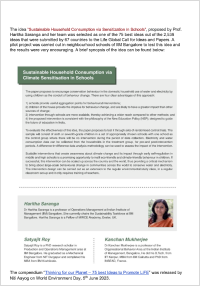
“Sustainable Household Consumption via Sensitization in Schools” by Prof. Haritha Saranga, Mr. Satyajit Roy and Prof. Kanchan Mukherji
Read More...
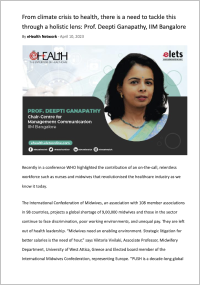
From climate crisis to health, there is a need to tackle this through a holistic lens
Read More...
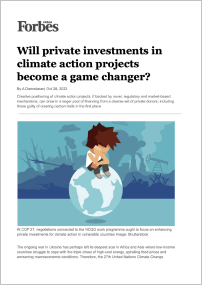
Will private investments in climate action projects become a game changer?
Read More...
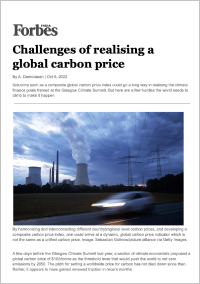
Challenges of realising a global carbon price
Read More...
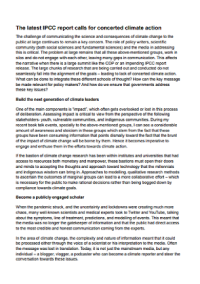
The latest IPCC report calls for concerted climate action
Read More...
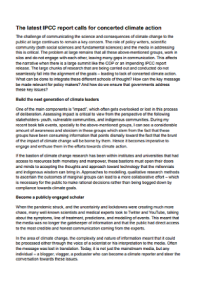
Spotlighting Women’s Health
Read More...

From Climate crisis to health- this World Health Day, there is a need to tackle this through a holistic lens
Read More...

Terracotta by Sachii: Crafting sustainable yet contemporary lifestyle products
Read More...
Sustainability Blogs Post

Scan for all Blog Post


 Energy
Energy Water
Water Carbon Sequestration
Carbon Sequestration